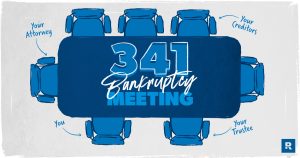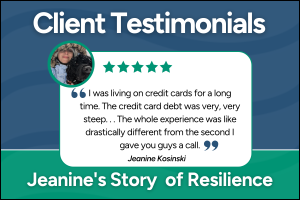You might have seen the ads promising that you can settle your debt for much less than you owe. If you have a lot of debt with accompanying and persistent collection calls, you might wonder if these companies can provide the debt relief options they promise.
To an extent, they can. Debt settlement companies can be a solution to freeing yourself from debt. But finding a reliable, trustworthy agency goes beyond calling the 800 number on the ads or even searching the internet. When you choose a debt relief company, you need to research which one will offer the services you need.
What is debt settlement?
Credit card companies and lenders want their money. However, repayment could be unlikely if you’re in a financial bind and can’t pay those balances. This is where debt settlement companies come into play.
These agencies — sometimes known as debt relief companies — negotiate with creditors and lenders to resolve what you owe. That resolution could mean reducing the balance, cutting fees or lowering interest rates.
Reputable debt settlement companies have long-standing relationships with industry lenders and creditors, meaning they can help expedite a fair settlement. This could let you avoid the last resort of bankruptcy to clear your debt. The lenders and creditors might also be willing to participate to prevent lengthy debt-collection processes or defaults.
However, it’s important to understand that creditors and lenders are under no legal obligation to help you out. Finding a reputable debt relief company requires extensive research and digging. You need to make sure you get a fair deal and protect yourself from scammers and bad actors.
How to choose a debt settlement company
Before making a decision, you should consider how much it will cost, how much you owe and the reputability of the company.
The costs
Debt-settlement companies earn revenue by charging fees equal to a percentage of the initial or settled debt. At a minimum, the cost is 14% and can go as high as 25%. Possible additional costs might include account setup fees and monthly service expenses. These costs could pose an additional burden if you’re already struggling financially.
A legitimate debt relief company can’t legally ask for upfront payment, so any such request is a red flag. Ask for a breakdown of anticipated costs and fees before signing the dotted line.
How much you owe
You might not owe enough to work with some debt relief companies. These firms obtain the majority of their revenues on a percentage of existing or settled debt, so you’ll need to have a minimum amount to make it worth their while.
The generally quoted debt “minimum” requirement is $10,000, though some debt-relief companies can go as low as $7,500.
Complaints and concerns
Debt settlement is an industry filled with fraud and scammers. Because of this, it’s essential to investigate these companies thoroughly before agreeing to work with one. One sure sign of a scam is a company that contacts you first.
Another way to determine if a debt relief company is legitimate is to find out what others say on third-party websites. It’s important to understand that most reviews will likely be negative. Debt relief is not an industry that attracts glowing accolades. However, you can still look for trends.
Look for a lot of unhappy comments involving the process and results. Also, look for complaints that are mentioned often about a particular company in areas like customer service or resolution. If the same criticisms are repeated frequently, consider another company.
Records and accreditations
Another way to determine if a debt relief company is legit is to check how long it has been in business. If that company has been in business for several years, the chances are that it isn’t a “fly-by-night” firm with dishonest aims.
Along those lines, the Federal Trade Commission has a database of companies prohibited from offering debt settlement services. This is another source to consider if you’re wondering whether a company is legitimate.
Another way to determine reputability is with accreditation. Membership in and accreditation by the American Association for Debt Resolution (formerly the American Fair Credit Council) isn’t essential for debt relief agencies. However, it does lend a level of credibility to the company. AADR members are held to strict operating standards and are audited regularly to ensure they follow regulations. You can find out if a firm is accredited by researching it at aa4dr.org.
As an added protection, be sure you’re working with an accredited debt settlement counselor rather than a salesperson. A counselor certified by the International Association of Professional Debt Arbitrators (IAPDA) can generate trust that the individual will support your best interests rather than doing it for the commission. Additionally, some states require that debt settlement counselors be IAPDA-certified.
Additional considerations
During the research process, be sure to explore the following with any company you consider:
- Length of time in business
- How much debt the company helped settle
- Whether commissions are involved (if the answer is “yes,” you could be dealing with salespeople rather than accredited debt counselors)
- The debt settlement process and estimated timeframe
While you’re asking these questions, be wary if you run across these red flags:
- The company claims it can settle your entire debt for a promised percentage reduction.
- The company touts a “new government program” to get rid of your credit card debt.
- The company issues an iron-clad guarantee that it can cancel your debt.
- The company claims it can stop all debt collection calls or lawsuits.
- The company says it can pay off your unsecured debts for pennies on the dollar.
If any debt settlement company makes promises that seem too good to be true, they probably are.
When to consider a debt relief company
Working with a debt settlement agency is an activity of last resort, often the final step before bankruptcy. It’s not an easy or inexpensive process. It’s not a quick fix either.
Researching a legitimate company takes time and effort. Once you start working with that firm, a debt resolution can take months, or sometimes years — and that activity remains on your credit report for seven years. It’s also important to understand the tax implications of this step. The IRS regards settled debt as taxable income unless you can prove insolvency.
However, working with a debt settlement company might make sense for your particular situation if:
- The debt is unsecured (debt settlement can’t be used with mortgages or auto loans).
- You’re behind on payments to creditors and lenders.
- You’ve tried other methods like debt management or debt consolidation.
- You’re okay with settling between 10% and 50% of your debt.
- Your only other option is bankruptcy.
One alternative — doing it yourself
You don’t need professionals for debt relief. If you’ve exhausted other options (like debt management programs, consolidation loans or 0 percent balance transfer credit cards), one path is to work directly with the creditors and lenders.
Get in touch, explain your situation, and ask if you can work out a plan that includes reasonable monthly payments. Such a plan might consist of a reduction in what you owe. The creditors could also be willing to lower interest rates on the principal or dispense with the late payment fees. Some might also agree to forbearance when you ask for a period during which you make no payments while you get your finances back on track.
Again, these institutions want their money. They might be willing to meet you halfway to avoid the hassle, time and expense of collections or the risk of not getting paid.
Doing it yourself vs. turning the process over to a debt relief agency involves time, effort and patience. However, you might avoid the extra fees and other possible difficulties of working with a debt settlement company to resolve your financial issues.
The bottom line
Those late-night ads or social media posts might paint debt settlement companies as the answer to your woes. But before you make the call or send an email, carefully examine the background of the advertised company.
If you’re having severe financial difficulty and can’t pay what you owe, debt settlement companies can be a solution. The above tips for choosing a debt relief company can help you find one that’s reputable and trustworthy. This, in turn, can help alleviate the stress connected to seemingly insurmountable debt so you can work toward a fresh financial start.
Read the full article here










